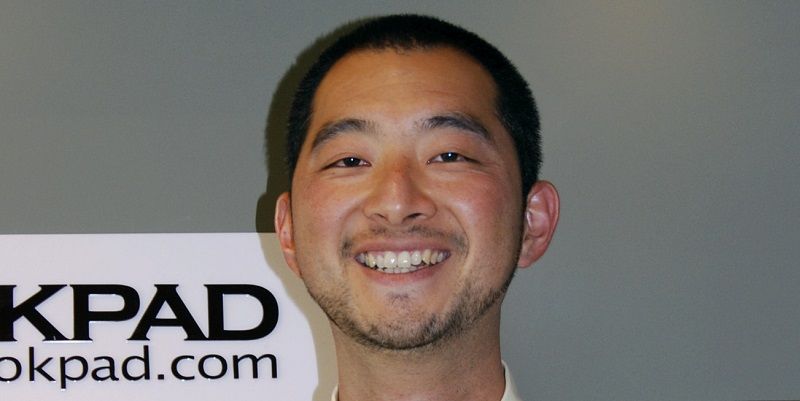How Japan’s recipe-sharing platform Cookpad is aiming to conquer India
With over 6.8 million recipes, Japanese online recipe-sharing platform Cookpad wants to make every day cooking fun and is expanding operations in India.
In 1997, Akimitsu Sano, who had graduated from Japan’s Keio University, was in the business of selling local vegetables online. He had started his company to help local farmers sell their produce. One day, he realised that the reason why the supply of local produce was dropping was because people did not know the right recipes to use the produce. That’s when the idea of Cookpad was born.
Today, Cookpad enables close to 58.8 million users to share and find recipes to cook at home. The platform has over 6.8 million recipes. The company went public in 2009 and has reported a profit touching $19 million. As of 2015, the company’s shares had risen by 20 percent. Sano holds over 44 percent stake in the company, which is worth $1 billion.
The company is now expanding operations in India.

The initial days
Sitting at Leela Palace’s Citrus Restaurant, Tomoya Yasuda, Global Head, Cookpad says, “Originally I was in charge of new business development within the company, which is basically a connection from farm-to-table startups. We built a platform to reach the table from the farm. I did this for a year-and-a-half or so and then started a business from the ground,” Tomoya says.
Tomoya, Akimitsu’s junior from college, says Cookpad initially had its business only in Japan, but now has a presence in 18 countries. The initial phase was acquiring companies in countries like India, Indonesia and Lebanon. The team refused to divulge details of the companies it has acquired in these geographies.

“Our business is basically a recipe-sharing platform based on local communities. For that, we need to have a local presence and acquire existing platforms. We have also started entering new markets. The reason I am here is to discuss entry into new markets with one of the biggest new markets being India. This is why global members are here and we are discussing the best way to enter this market,” Tomoya says.
Generally secretive, there isn’t much information on Cookpad. An article in Forbes states that Akimitsu left his role as CEO and went on to acquire startups like Cucumbertown, a US food blogging platform, for undisclosed amounts. He is, however, back as Executive Officer of the company.
Making cooking fun
Tomoya says Cookpad’s mission is to make every day cooking fun. By simply making every day cooking fun, the team feels they can make an impact on many issues that people are facing, including food security, environmental issues and healthcare.
Explaining, Tomoya says if you cook every day at home, you start realising where food comes from and you raise awareness about things like food scarcity and food security. Eating at home every day is naturally a lot healthier than eating outside.
“It is not about market size, but how we want to impact the world. We identify cooking as a way to make this impact because everybody cooks at some point, not only in Japan but around the world,” Tomoya adds.
The team believes that local ingredients are fundamentally important because every recipe is driven by local ingredients. The motivation involved is universal. There is a lot of interest in Japanese households every day about what is being cooked at home. The team believes that it must be similar in other regions too.
There is a responsibility on someone or the other every day to find an idea of what to cook.
“We aim to help people find these ideas. We empower people to cook at home. In places like Japan, women, typically housewives, cook every day and are not necessarily appreciated. It is an everyday agenda,” Tomoya says.
Bringing out great hidden recipes
The aim is to make them feel appreciated and make them realise that they are valuable to the community through their cooking of great recipes.
The team states they are trying to empower them and make the world a better place. That kind of connection between people is unique not only to Japan but across the world.
He adds,
“Four years ago, I was travelling and found that in every part of the word, even though recipes are vastly different, the motivation behind them is fundamentally the same. That is why I felt that there was a huge opportunity for us. We are one of the few technologically driven people and most profitable and mission driven-company, and we saw this as a huge opportunity to develop outside Japan."
Moving to a mobile world
However, when Cookpad started operations, it was a desktop world. The world today is a mobile-driven one.
Tomoya says one of the key developments in Japan was the mobile feature phone, which was a key driver of growth. People, especially housewives, could now see recipes on the feature phone and follow cooking instructions. They shared recipes, which were now accessible everywhere.
Explaining their business, Tomoya says, “We are very profitable because we are a subscription business. Sixty percent of our business comes from subscriptions while 40 percent comes from advertising. We are very stable, our profit margins are very high and we are in a very lucky position because we are making profits in Japan and are investing them elsewhere. We also understand that it takes time because we are a community-based business.”
Fighting a different tide
The foodtech business is touted to be worth $50 billion and currently, the world is increasingly dominated by food delivery Swiggy. Tomoya says there is a small challenge. There are people providing and delivering readymade food and the global trend is veering against us.
“We know that we are against the tide, but we strongly believe that increasing the number of people who cook every day will positively influence the world,” Tomoya says.
The company says that the biggest challenge at the moment is to make the initiative grow.
Japan, Tomoya says, is a small country and we want to establish ourselves on a global scale. Indonesia is the team’s fastest growing market currently.
Cookpad believes there are more opportunities in building the capability of cooking. If you do not use proper techniques, you cannot cook properly. The team aims to make every day cooking fun and believes that if you have the access to the right ingredients and the right recipes, cooking will be more fun.
“The ingredients and skill sets are things we can impact through technology,” Tomoya says.
Cookpad, which has its global headquarters is in the UK, has over 10 people in India. The team aims to hire a community manager in each location and build a local community.
“We have done it successfully elsewhere and we want to do so in India as well. This requires a lot of talent and efficiency in operations; that is another major challenge. We know what has to be done and how it works,” Tomoya adds.
“We are starting with Bengaluru, but we also want to capture as many small Tier-2 and 3 cities as we can. We do not have any corporate structure yet, but at least we have a team here in Bengaluru, which is great. Talent is always a challenge for us, but we eventually hope to overcome this challenge,” Tomoya says.







